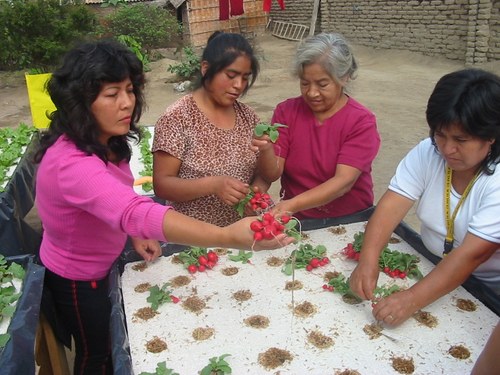AICS/MAE

According to data from the 2006 Human Development Report, in Peru each year, 26 children out of one thousand with less than one year of age die, as well as 34 out of a thousand children under five years old. In the whole Latin America, Bolivia only has higher childhood mortality rates. The main cause of this situation is the wide spread of malnutrition, which, according to Unicef data, affects 25% of Peruvian children (730 thousand children aged 5 and 574 thousand between 6 and 9 years) and is responsible for 60% of deaths in these age groups. The situation is particularly serious in the mountain departments and in the suburbs of the main cities, where the rate of child malnutrition reaches 40-50%.
According to the FAO-UN, Peru is one of the countries where food security is most at risk, due to the difficulties, for an increasingly large part of the population, to access supplies of healthy food in sufficient quantities. In recent years, various factors have compromised food supply chains: recurring economic crises, increased urbanization, rapid deforestation and desertification processes, strong population growth, and changing lifestyles.
Beyond the immediate consequences on health, the problem of chronic malnutrition puts a heavy burden on the future of children, compromising their academic performance and consequently the acquisition of knowledge that allows them an adequate level of productivity in adult life: a situation that may hinder the development of the whole Peru. Started in 2002 and managed directly by Ce.Svi.Te.M. (Third World Development Center) through its Peruvian headquarters, the project involved, in a context of severe poverty and social hardship, about 300 children aged 4 to 12, belonging to 8 Clubes de Madres, associations formed by mothers in indigence, which, by joining together to provide mutual help, guarantee a concrete hope for their children.
Through the initiation of hydroponic gardens, the project has made it possible to improve the nutritional quality of meals given to children in comedores and to offer mothers the opportunity to learn new income-generating activities. Hydroponics is a type of production technology that does not require land. In this project the hydroponic gardens were represented by waterproofed wooden tanks: some filled with an inert substrate in which the plants were irrigated with water and nutrients; others filled with water and nutritive solutions, in which floated polystyrene panels on which the vegetables were reared. The horticulture group of the Department of Agricultural Sciences of the Alma Mater Studiorum - University of Bologna, has devised the project, has carried out scientific advice, has collaborated in the installation of the gardens and in the training activity.
Collaborations:
The project was financed by the Veneto Region and the Italian Ministry of Foreign Affairs and was implemented by Ce.Svi.Te.M.